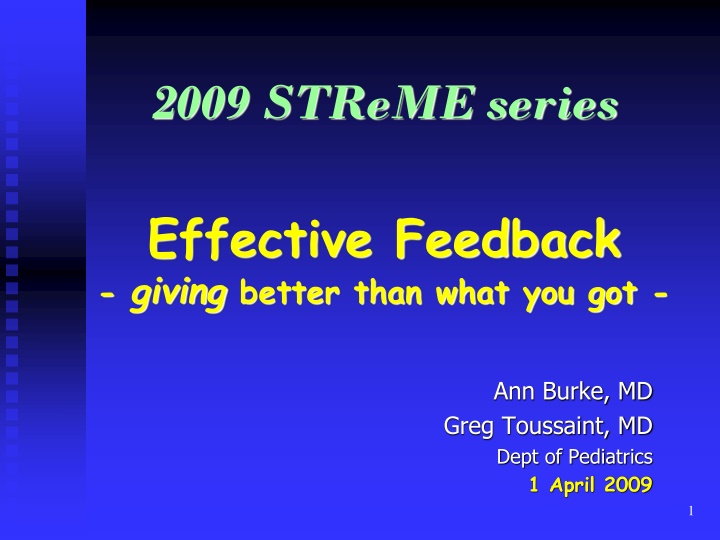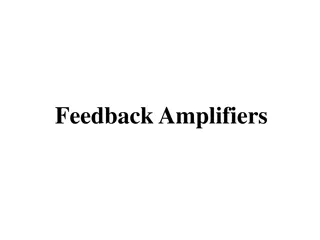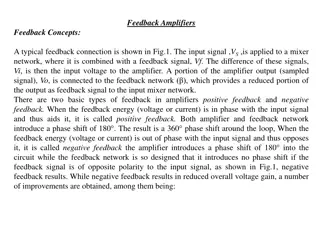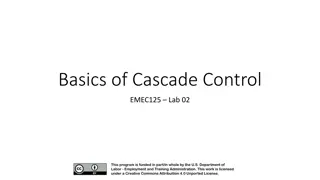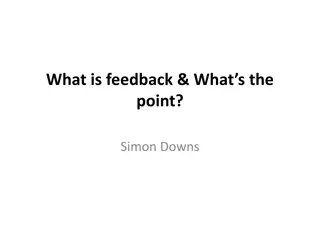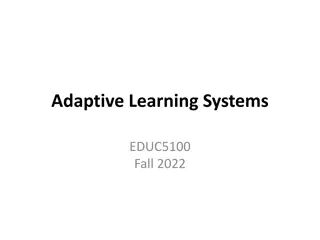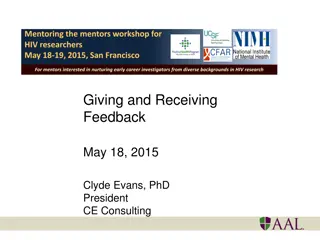Principles of Effective Feedback in Clinical Settings
Contextual images from a seminar on giving effective feedback in clinical practice, emphasizing the importance of timely, behavior-focused feedback that is constructive and encourages improvement. The content covers defining feedback, principles of effective feedback, and guidelines for delivering feedback in a proactive and constructive manner.
Uploaded on Mar 01, 2025 | 0 Views
Download Presentation

Please find below an Image/Link to download the presentation.
The content on the website is provided AS IS for your information and personal use only. It may not be sold, licensed, or shared on other websites without obtaining consent from the author.If you encounter any issues during the download, it is possible that the publisher has removed the file from their server.
You are allowed to download the files provided on this website for personal or commercial use, subject to the condition that they are used lawfully. All files are the property of their respective owners.
The content on the website is provided AS IS for your information and personal use only. It may not be sold, licensed, or shared on other websites without obtaining consent from the author.
E N D
Presentation Transcript
2009 STReME series Effective Feedback - giving better than what you got - Ann Burke, MD Greg Toussaint, MD Dept of Pediatrics 1 April 2009 1
Post-Game: Giving Feedback A Series of 4 Downs: What is feedback? Principles of feedback Delivering the message Heard one? Now do one
Giving Feedback What is feedback? Information a system uses to make adjustments Ende J. JAMA. 12 Aug 1983 Intended to improve; sharpen clinical skills Feedback presents information Evaluation summarizes performance; a grade Without feedback, incorrect or ineffective behaviors unwittingly continue
Principles of Effective Feedback Well timed and expected Set aside time; inform learner when it will occur Avoid stressful situations for either party Base feedback on first-hand data Use I-messages to convey ownership of info Any important aspect of duties worth including If subjective or second hand, say so
Principles of Effective Feedback Focuses on behavior, not individual Offer an informed, objective appraisal Identify clinical skills or actions for improvement Remediable behaviors Positive when deserved; negative to help Should encourage learner to do better Negative not critical of individual s self-worth
Delivering the Message Be proactive Observe with intention of giving feedback Know the performance criteria (clerkship objectives) Begin with learner s own assessment Use reflective listening to facilitate their conclusion Allows you to assess if any insight present
Delivering the Message Offer feedback using principles outlined Provide time for mutual problem-solving See if learner recognizes problem areas Ask for solutions. Be ready with your own Summarize the important issues Get a commitment to follow-up on progress
The Two-Minute Drill Remember 6 characteristics of feedback Focus on specifics Non-judgmental Timely Objective Limited Expected Ask Tell Ask Ask learners how they think they did/are doing Tell learners what you observed Ask learners how you can help them improve
Bucky says What is feedback? Information to improve clinical skills Part of our responsibility in hierarchy of medical teaching Principles of feedback Positive or negative always meant as constructive Delivering the message Message needs delivery, even if receiver not interested Does your learner know it s feedback? 9
